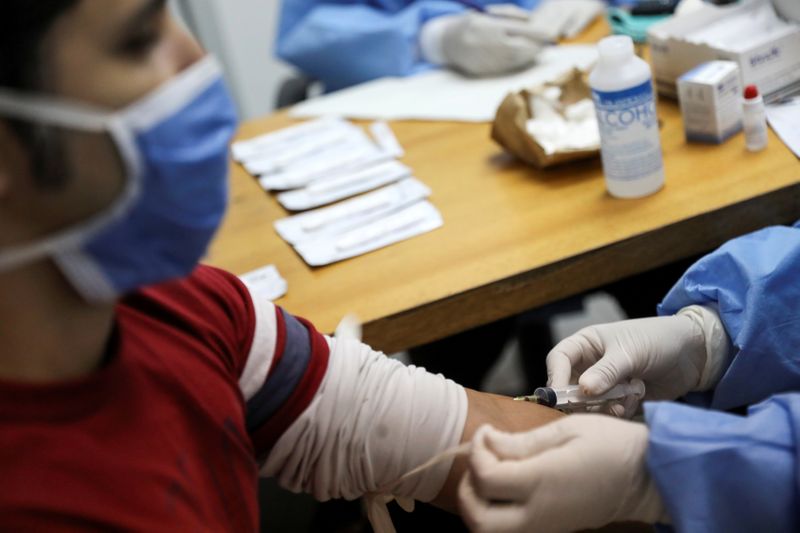By Corina Pons and Mayela Armas
CARACAS (Reuters) - Venezuela is asking the Bank of England to sell part of the South American nation's gold reserves held in its coffers and send the proceeds to the United Nations to help with the country's coronavirus-fighting efforts, according to two sources with knowledge of the situation.
Venezuela for decades stored gold that makes up part of its central bank reserves in the vaults of foreign financial institutions including the Bank of England, which provides gold custodian services to many developing countries.
But the Bank of England has since 2018 refused to transfer the 31 tonnes of gold to the government of President Nicolas Maduro, whom Great Britain has refused to recognize as the country's legitimate leader after his disputed 2018 re-election.
The effort signals that Maduro is desperately seeking financial resources around the world as the country's economy struggles under low oil prices, crippling U.S. sanctions and a paralyzing coronavirus quarantine.
Consulted about the issue, the United Nations Development Programme said it "has been approached recently to explore mechanisms to use existing resources held by the Central Bank of Venezuela in financial institutions outside the country to fund the ongoing efforts to address the ... the COVID-19 pandemic."
It was not immediately evident how much gold Venezuela was asking the Bank of England to sell. At current market prices, Venezuelan gold on deposit at the Bank of England would be worth around $1.7 billion.
Venezuela's information ministry and central bank did not respond to requests for comment.
The Bank of England said it does not comment on individual customer relationships.
Former U.N. aid chief Jan Egeland on Tuesday called for sanctions on Venezuela and other countries to be lifted and urged the release of Venezuelan funds in banks in Britain, the United States and Portugal.
Venezuela has lived a six-year economic crisis driven by an collapsing socialist system and a decaying oil industry, driving a mass migration of nearly 5 million people and fueling hyperinflation that has left many unable to obtain basic food.
Recent tightening of U.S. sanctions meant to oust Maduro have strangled fuel imports, prompting Venezuelans to wait for hours in fuel stations queues or turn to the pricey black market.
Venezuela as of Tuesday had reported only 329 coronavirus cases and 10 deaths.
But critics have questioned the figures, and the United Nations has described the country as one of the most vulnerable due to lack of running water in many areas and a decayed public health system.
GOLD SALES CONTINUE
Maduro's government has for years raised cash by exporting gold, both from artisanal mines in the southern Amazon (NASDAQ:AMZN) jungle and from gold reserves held by the central bank.
The central bank has continued to remove gold from its coffers in the last month with the hopes of exporting it, according to three sources, one of whom said eight tonnes have been removed since quarantine started in mid-March.
Central bank data shows that total monetary reserves fell more than $500 million between April 14 and 24.
Employees who work in the wing of central bank where the gold vaults are located have been arriving to work despite the quarantine, according to three sources familiar with the matter.
It was not immediately evident how many gold sale operations had been carried out or where the gold was sold.
Part of the proceeds were used to acquire supplies to refine the country's crude, a source added, in response to the near collapse of the country's 1.3 million barrel-per-day refining circuit.
Six tons of gold had already been withdrawn from the central bank between the end of 2019 and beginning of 2020 and sold to acquire euros in cash, which the institution channeled through local banks and the government used to pay suppliers.

Following the latest withdrawal, the central bank would still have more than 80 tonnes of gold in its vaults, according to sources, compared with 129 tonnes at the start of 2019.